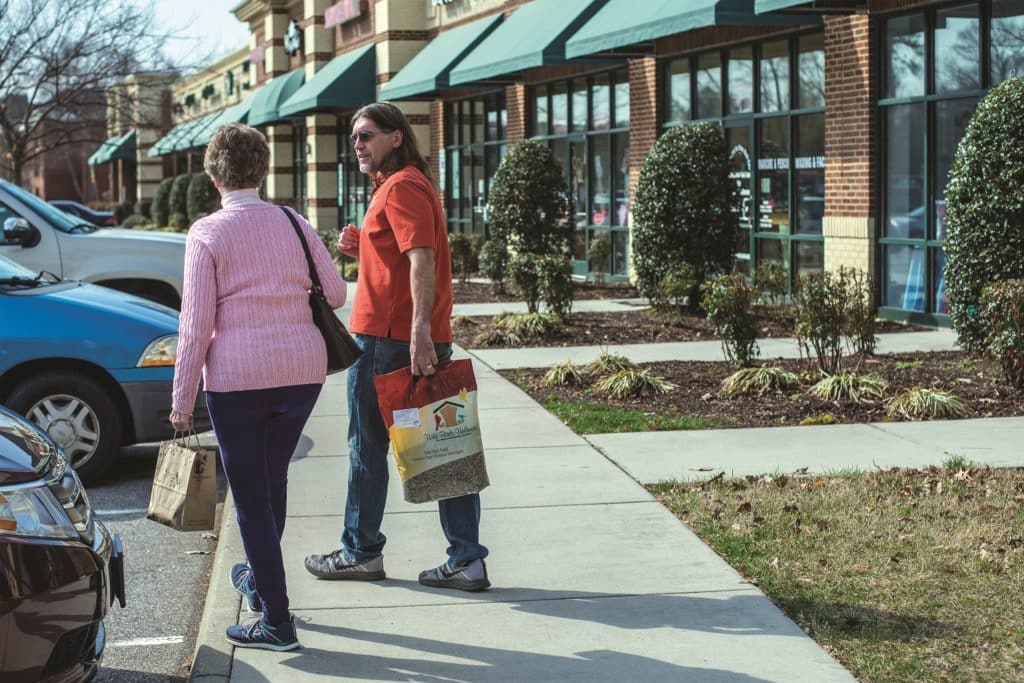
We all need food to survive. It would seem reasonable, then, that being part of a high-demand business that delivers food to consumers would be a profitable venture. Add in the safety net of franchising and it seems like supermarket franchises would be an appetizing prospect. Think again. There are actually only a few brands that fall under the category of franchise grocery stores. Supermarkets can be franchised, but most big names that we are all familiar with like Walmart, Target, Kroger, Whole Foods, Trader Joes, Costco, Piggly Wiggly, Winn-Dixie and Publix, remain corporately run with stockholders.
There are some grocery store franchise opportunities for entrepreneurs looking to get into the franchise food business. Investment prices are varied and few of those brands would fit the picture a “typical” supermarket. Instead, they are specialty, discount or what might be considered convenience stores. Yes, they sell foods, but not in large quantities like what might be found in a grocery store where we do our weekly food shopping.
Three Reasons Franchise Grocery Stores are a Bad Idea
Question is, are franchise grocery stores a good investment? There are three major red flags that can be problematic for you as a franchise owner.
- Competition: First, as a small independent or a grocery store franchise, it is tough to compete against huge name brands. Not only do corporate brands like previously mentioned Walmart, Kroger or Publix have high brand recognition, but because they have ample shelf space, they are usually able to provide large selections of various varieties of foods and brands at a competitive price. Throw into the mix the changes we’ve seen in the last two years, due to new pandemic practices– large brand stores can provide high-demand customer services like personal shoppers whether that’s their own employees or third-party agencies, as in the case of Instacart. They can also provide the convenience of online ordering, curbside pick-up and delivery. Keeping up with those services as a lesser-known brand operating in a smaller space with less employees will be challenging.
- Costs: When you have high volumes of stores you can provide discount bulk buying from suppliers. When it costs a store less money to stock the shelves thanks to reduced inventory prices, they are in a position to pass that savings on to customers or produce a higher yield on their investment, increasing their overall profit. Not being affiliated with a big brand store affects your buying power. Many of the supermarket franchises are either specialty or convenience stores with less shelf space or storage for stock not to mention fewer numbers of stores.
- Waste: The food on grocery store shelves, in the refrigerated sections and fresh meat and produce has a limited shelf life. Consequently, what isn’t sold safely before expiration dates will become waste. Essentially, that means watching profits get tossed in the trash. Stats show that about 30% of food in American grocery stores is thrown away. US retail stores generate about 16 billion pounds of food waste every year. For a franchise store those are hard stats to overcome and still make a profit.
The bottom line is— the “typical” grocery store model is not set up to successfully franchise. They are designed to function more effectively with shareholders as corporate establishments.
Here’s a Better Idea: Wild Birds Unlimited
If you are looking for a better franchise investment idea, check the list. Wild Birds Unlimited gives you:
- Affordable investment
- Recognizable and respected brand
- High-demand goods and services
- Great profit potential
- Niche industry
- Little to no competition
Wild Birds Unlimited is your community store serving as a resource for nature and wild bird enthusiasts.
If you still can’t help but think about the grocery store franchise, consider this.
Wild Birds Unlimited is a unique franchise. We’ve been a leading wildlife and retail franchise for more than 40 years. We provide you, as a franchise owner, an effective and proven model that’s been successful for our 350 franchise stores located throughout the U.S. and Canada.
Worried about consumer demand for this business? Don’t be. Wild bird watching is soaring! Every year, $7.6 billion is spent on bird feeding and wildlife watching. There’s an estimated 81 million people who love to watch birds in nature or their backyard, and these hobbyists are creating quite a demand for Wild Birds Unlimited.
Ready to take a closer look? Take the next step to becoming a franchise owner with Wild Birds Unlimited and learn more about us. Hit the red button you see at the top of this page and let’s get started.
